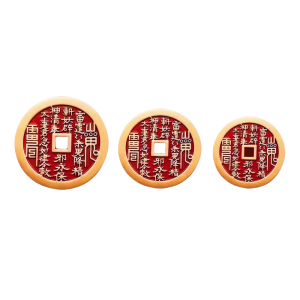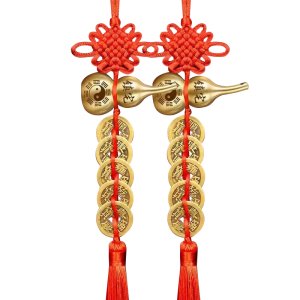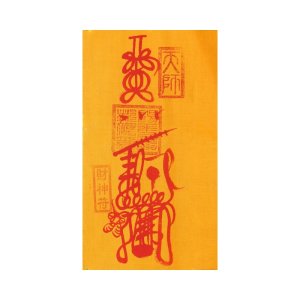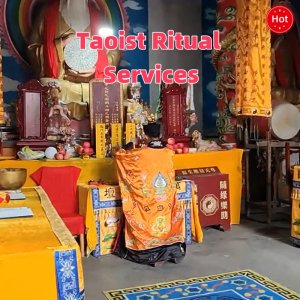Tao te ching Chapter Thirty-three -Eighty One
1. Part 1
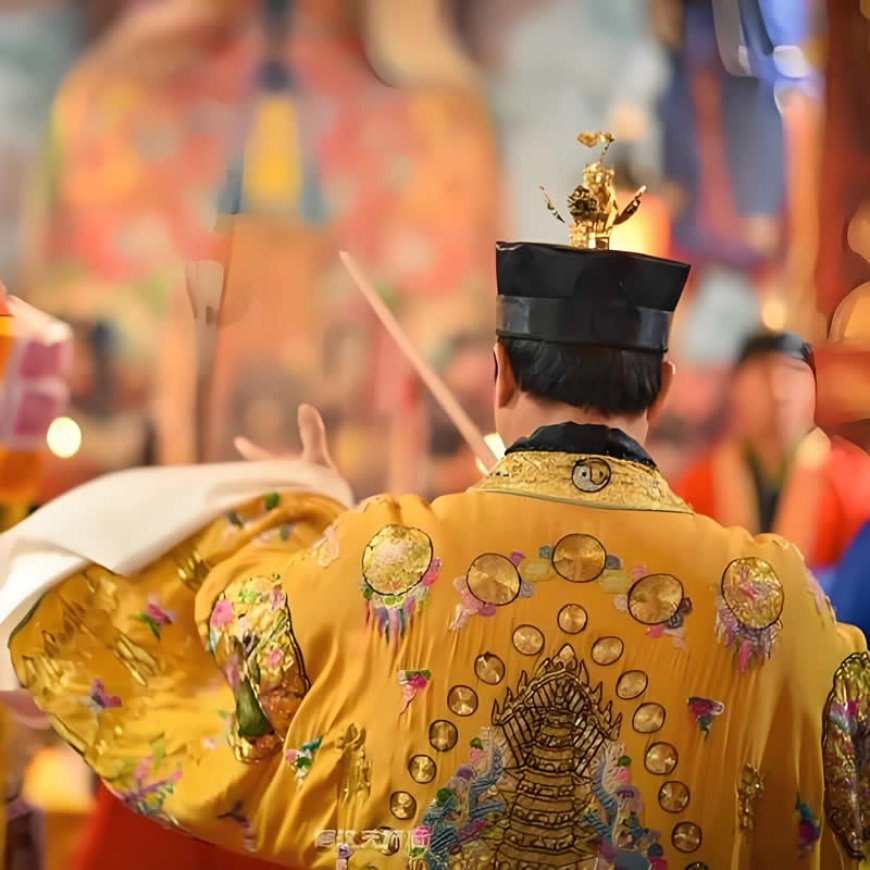
Chapter Thirty-three
One who knows other people is wise.
One who knows himself is enlightened.
To overcome others is strong.
To overcome oneself is the will of power.
One who is contented is rich.
One who is determined has the strength of will.
Those who embrace their true nature shall long live.
He who is enlightened with the original nature,
Although dies physically, is eternally united with the everlasting Tao.
Chapter Thirty-four
The great Tao is ever present.
It can adjust Itself to everything.
All things live by It, and It does not deny them.
When Its work is accomplished, It does not claim possession.
It gives great love to nurture all things and all lives, but dominates not.
The true void of Tao has no desires and may seem small.
Yet all things entrust their lives to It and It does not act as their master.
This may be recognized as “the Great.”
Because a saint does not restrict himself with the greatness,
Hence his greatness is accomplished.
Chapter Thirty-five
He who embraces the Great Tao shall be the guidance of the world.
By following him, the world will not be harmed and will be rendered with peace and harmony.
Pleasures and delicacy can only attract passers-by to stay temporarily.
The teaching of Tao is plain without extraordinary appearances.
It can not be seen,
It can not be heard,
It can not be depleted or exhausted.
Chapter Thirty-six
It desire shall conceal true self,
True self will manifest itself even more.
If desire shall weaken true self,
True self will strengthen itself even more.
If desire shall abandon true self,
True self will prosperous even more.
If desire shall deprive true self,
True self will give even more.
This is known as the enlightened nature that is subtle yet profound.
Gentleness overcomes strength, and the meek overcomes the strong.
Just as fish live in deep water and cannot survive after being taken out of the depths.
And the powerful weapons of a country should not be displayed,
Just like one’s true nature cannot be revealed to be seen.
2. Part 2
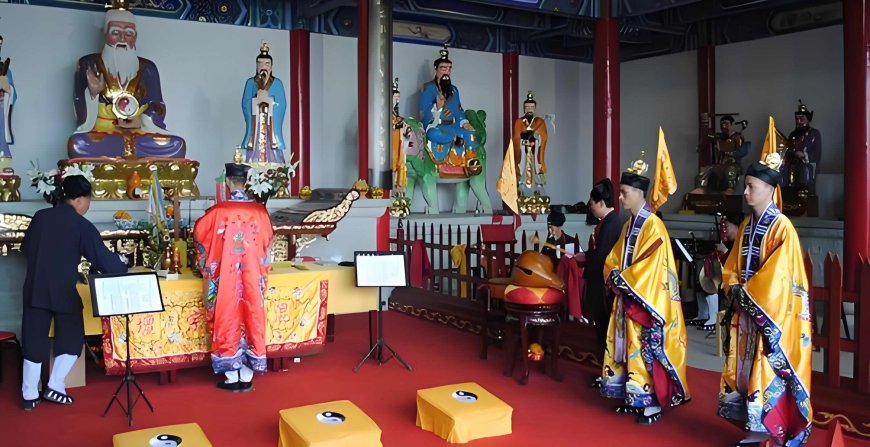
Chapter Thirty-seven
The everlasting Tao acts according to the natural Way.
Therefore there is nothing that It will not accomplish.
If kings and the nobilities can abide by their true nature and follow the great Tao,
All things shall be reformed naturally.
If during the process of reform, desires arouse.
I shall overcome with the simplicity of original nature.
With the simplicity of true nature, there shall be no desire.
Without desire, one’s original nature will be at peace.
And the world will naturally be in accord with the right Way.
Chapter Thirty-eight
A man of superior virtue is not conscious of being virtuous, hence is truly virtuous.
A man of inferior virtue performs for the purpose of virtue, hence he is not virtuous.
A man of superior virtue acts without action, and performs with his true nature.
A man of inferior virtue acts with intentional effort.
A man of superior kindness acts a natural act.
A man of superior justice acts with righteousness and feelings for others.
A man of superior etiquette acts according to his true self, hence no one responds to him by
moving away.
There, when Tai is lost, there is Te (virtue).
When Te is lost, there is humanity.
When humanity is lost, there is justice.
When justice is lost, there is etiquette.
Etiquette becomes prevalent when people fail to be sincere and honest.
Hence, chaos begins.
A person of knowledge and self-opinion will be hindered from the enlightenment of Tao.
Thus, this is the beginning of ignorance!
Therefore, one who cultivates himself with Tao,
Embraces the original nature and indulges not in sensual nature.
He abides by the fundamental Oneness and indulges not in sensory pleasures.
Thus, abandon those desires and abide by this true essence of Tao.
Chapter Thirty-nine
In the beginning, there were those who attained the Oneness;
Heaven, by attaining the Oneness became clear;
Earth, by attaining the Oneness became peaceful;
Spirit, by attaining the Oneness became divine;
True nature is like an empty valley, and by attaining the Oneness,
It became fully productive.
All things, by attaining the Oneness became alive.
Emperors and nobilities, by attaining Oneness can bring peace and prosperity to the world.
All these are the results of achieving Oneness.
Heaven, without clarity would crack.
Earth, without peace would quake.
Spirit, without divinity would be powerless.
True nature, without productivity would result in exhaustion of life.
All things, without life essence would perish.
Emperors, without Oneness to exalt them to nobility, would stumble and fall.
Thus, honor is based on humbleness.
The high builds its foundation upon the low.
Therefore, the kings and nobles call themselves “the solitude,” “the unworthy,” and “the
virtueless.”
Is this not the reason why they base their honor upon humbleness?
Hence, the highly honored do not regard themselves as nobles and have no wish to be selfcentered to think nobly of themselves as a piece of jade nor to think lowly of others as a lump of
stone.
Chapter Forty
When Tao is in action, one’s worldly nature can be reversed to the true nature.
Gentleness is the way of application of Tao.
All things in the world originate from the manifestation of Tao,
The manifestation of Tao is the form of being,
Which originates from the non-being of the void, the Great Tao.
Chapter Forty-one
When a superior man heard of Tao,
He cultivates himself diligently.
When an average man heard of Tao,
He is doubtful, vague and would give up halfway.
When an inferior man heard of Tao,
He laughs and thinks of It as foolish.
If Tao is not being laughed at,
It is not the Great Tao.
Thus, there is a traditional saying of,
One who is enlightened with Tao may appear foolish.
He who is advancing in Tao may appear to withdraw.
Great Tao is plain and simple which can adapt to all circumstances, although It may seem
uneven and rough.
A man of superior virtue is like an empty, receptive valley.
A man of innocence may appear to be disgraced.
A man of great virtue appears to be deficient.
A man who practices Tao and actively achieves great merits may appear gentle and meek.
A man who follows his true self may appear to be changeable.
Generosity has no rough angels.
Great achievement is time consuming, and is slow to complete.
Great tone has no sound.
Great Tao is formless,
It is invisible and has no name.
It benefits all and fulfills all.
Chapter Forty-two
Tao gives birth to one.
One gives birth to two.
Two gives birth to three.
Three gives birth to all things and all beings.
All beings bear the negative physical form which is represented by Ying, and embrace the
positive true nature which is represented by Yang.
With the union of these two, they arrive at a state of harmony.
Men dislike to be “the solitude,” “the unworthy,” and “the virtueless,”
Yet the Lords and nobles call themselves these names.
Hence, things are benefited by being humble, and damaged by profiting.
What the ancients had taught, I shall also teach as such:
A man of violence who is in disharmony between Ying and Yang that is the physical body and
true self, shall die of an unnatural death.
This is the essential of my teaching.
Chapter Forty-three
The softest of all things can overcome the hardest of all things.
Regardless of being or the non-being, they all have to return to the empty void to express their
gentleness.
Thus, I have learned the benefits of natural actions without personal desires.
Very few can understand the value of wordless teaching and due act of natural Way.
Chapter Forty-four
Fame and life, which one is of intimacy?
Life and wealth, which one is of importance?
To gain one but to lose the other, which is of harm?
Therefore, if one’s desires are great, one would result in exhaustion.
Overstock shall result in heavy loss.
He who is contented will not suffer disgrace.
He who knows his true nature will not incur danger.
It is in this Way that one can long endure.
Chapter Forty-five
Great achievement appears to be inadequate, yet its use is never exhausted.
Great fullness appears to be void, yet its use is boundless.
Great honesty may seem to be accused of wrong doing.
Great mastery appears to be clumsy.
Great eloquence may seem to be inarticulate.
Movement can overcome chill.
Tranquility can overcome heat.
Peace and calmness is the Way to guide the world.
Chapter Forty-six
When the world lives in accord with Tao,
Fine walking horses can be retired form plowing the field.
When the world fails to live in accord with Tao,
Even pregnant mares are used as war horses,
And were forced to breed in the battlefield.
The greatest crime is to have too much desire.
The greatest disaster is not to find contentment.
The greatest mistake is to desire for endless possession.
Hence, when one is gratified with self-contentment,
True contentment can then long endure.
Chapter Forty-seven
Tao exists in one’s own true self.
It cannot be found outside of one’s true nature.
Hence, there is no need to leave the house to take journey in order to know the world.
There is no need to look outside of the window to see the nature of Tao.
The further one departs from Tao, the less one will be able to know.
Therefore a saint is wise to know without seeking for It.
He is wise to understand without seeing It.
He is wise to accomplish according to the Natural Way.
Chapter Forty-eight
In pursuing knowledge, one learns with intellect and desires.
Therefore one’s knowledge is accumulated day after day.
In pursuing Tao, one is enlightened with the true nature and thus diminishes daily one’s worldly
desires and knowledge.
The continuous depletion of one’s desires persists until one acts accordingly to the natural Way.
By acting without personal intention enables one to accomplish all things.
Therefore, to rule over the world,
One must act naturally without personal desires.
If one pursues with extreme effort, one shall fail to rule the world.
Chapter Forty-nine
The saint has no set mind,
He regards the wish of the people as his own wish.
He is kind to the kind, he is also kind to the unkind.
This is the true virtue of kindness.
The saint trusts those who are trustworthy.
He also trusts those who are not trustworthy.
This is the true virtue of trust.
The saint conducts himself in the world by harmonizing with all beings to be at one.
The worldly people thus look up to him attentively with their eyes and ears.
And the saint treats the people like a loving mother who loves her children unconditionally.
Chapter Fifty
Men enter this world with life and leave this world with death.
Those who work hard for living and longevity are comprised of one-third of the people.
Those who are leading their life towards death are comprised of another one-third.
Those who live with indulgence in passion and desires shall harm their life and invite death.
This is comprised of the final one-third of the people.
Why is this so?
It is because men are over-concerned with pleasures of life and hence exhaust themselves with
hard work of desires of greed.
The wise one who knows how to nourish life with the Nature Tao,
When he travels, will not encounter fierce animals such as wild buffalos and tigers.
When he is engaged in the battlefield, will not be harmed by the weapons.
The horns of the wild buffalos are powerless against him.
The claws of the tigers are useless against him.
The weapons are of no avail towards him.
Why is this so?
It is because the wise one follows the great Tao and cultivates himself accordingly.
Hence, a man of Tao will not perish.
Chapter Fifty-one
Tao gives birth to all things.
And Te (virtue) nurtures them.
Matter shapes them.
The natural environment matures them.
Therefore, all things abide by Tao and honor Te.
Although Tao deserves reverence and Te deserves honor,
They are not demanded by decree,
But is a result of the Nature Way.
Hence, Tao gives life to all beings and Te nurtures, grows, fosters, develops, matures, supports,
and protects them.
Tao gives birth to life and yet claims no possession.
It gives support without holding on to the merit.
It matures them but does not take control of.
This is called the Mystic Te.
Chapter Fifty-two
The beginning of the universe is Tao,
It is the mother of all.
By knowing the Mother, we will know her creations.
By knowing the creation of all lives, one can then return to the origin and abide by the Mother.
It is in this way that although the body dies, the spiritual nature will not perish.
To abide by the Mother of Tao is to keep guard on one’s sensory desire and shut the doors of
temptation so as to prevent one from pursuing outwards.
Thus, by doing so one’s whole life may be preserved from exhaustion and pains.
However, if on the contrary one indulges oneself in the pleasure of desire and opens the door of
temptation to pursue outwards,
Then one’s true nature will be lost and hence is beyond rescuing.
Those who are aware of the essence of the original nature are said to be enlightened.
Those who abide by the gentleness of Tao are said to be strong.
Those who employ the glory of Tao,
And were able to return to the true nature, are ensured of no distress and is said to embrace the
Nature Tao.
Chapter Fifty-three
If I were to have the very slight insight,
I would live in accordance with the Great Tao.
My only fear is, to go astray from Tao while spreading it.
Great Tao is smooth and plain, yet people prefer the devious bypaths.
Hence, the government is corrupted with luxury and splendor.
The people were exhausted with labor and left the fields to be wasted and the granaries depleted.
Under such practices, the officials would wear fine clothes,
Carry sharp swords and indulge themselves in good food and drinks.
They crave with greed to possess great wealth.
Such is said to commit the crime of robbery and certainly is not the Way of Tao.
Chapter Fifty-four
One who cultivates himself with Tao,
Firmly establishes his virtue.
He holds on faithfully to the Great Oneness,
And is honored for generations ever after.
Cultivate oneself with the Oneness, Tao and the virtue is genuine.
Cultivate a family with the Oneness, Tao and the virtue is in surplus.
Cultivate an entire village with the Oneness, Tao and the virtue is enduring.
Cultivate a whole nation with the Oneness, Tao and the virtue is luxuriant.
Cultivate the whole world with the Oneness, Tao and the virtue is universal.
Hence, by cultivating oneself, thus gains insight into one’s true virtue.
By cultivating a family, thus gains insight into a loving family.
By cultivating a village, thus gains insight into a harmonious village.
By cultivating a nation, thus gains insight into the extensive benefits for the people.
By cultivating the whole world, thus gains insight into the universal peace that embrace all
beings.
How do I know that the world is so?
It is through this Way.
Chapter Fifty-five
One who preserves Te (virtue) in fullness,
Is to be compared to an innocent infant.
Hence, no poisonous insects will sting him.
No wild beasts will attack him.
No birds of prey will pounce upon him.
In governing one’s life, learn from an infant as such:
Its bones are soft, its tendons are tender, yet its grip is firm.
No knowing the unity of male and female,
Yet the infant’s sexual organ is aroused.
This is because its life essence is pure and complete.
Crying all day, yet the infant’s voice does not turn hoarse.
Such is the perfect harmony.
To know harmony is called “Everlasting.”
To know everlasting is called “Enlightenment.”
To overprotect one’s life is called “Ill omen.”
To let one’s mind follow the emotional impulse is called “Compulsion.”
When things reach their prime they start to age and decline.
This is the life that is diminishing, which shall not reach the ultimate essence
Chapter Fifty-six
The wise does not speak.
He who speaks is not wise.
Keep silent and close one’s mouth.
Keep guard on one’s sensory organs.
Round off one’s edges.
Untie the entangled.
Harmonize with the glory.
Mix with the lowliness.
This is called the Mystic Unity.
Because the wise is unified with all and has no distinction,
Thus, one cannot get close to him,
Nor can one keep far away from him,
One cannot benefit him,
Nor can one harm him,
One cannot honor him,
Nor can one disgrace him.
Therefore, he is honored by the whole world.
Chapter Fifty-seven
Govern a nation with the right principle,
Fight a battle with the tactics of surprise,
Rule over the world with peace and natural effort.
How do I know that this so?
By the following:
The more prohibitions that are imposed on people,
The poorer the people become.
The more sharp weapons the people possess,
The greater is the chaos in the country.
The more clever and crafty the people become,
The more unusual affairs occur.
The more laws and regulations that exist,
The more thieves and brigands appear.
Hence, the saint declares:
I act effortlessly with the Way of Tao,
Thus, people transform themselves naturally.
I love tranquility and peach,
Thus, people naturally follow the right Way.
I do not exhaust people with labor,
Thus, people naturally are wealthy.
I have no personal desires,
Thus, people naturally are innocent and simple.
Chapter Fifty-eight
When the government is dull,
People are simple and sincere.
When the government is complex and stringent,
People are cunning and shall cause trouble.
Calamity is what blessings depend upon.
In blessings there hides the calamity.
Who knows the ultimate end of the cycle of calamity and blessings?
Is there no true principle that exists?
The normal may revert and become unusual.
The good may revert and turn into evil.
Long indeed, man has been under such delusion.
Therefore, the saint abides by firm principle and does not depart from it.
He is honest and not mean.
He is upright and not rue.
He is honored and not eminent.
Chapter Fifty-nine
In governing one’s life and serving the nature,
There is nothing better than to follow the Way of simplicity.
Simplicity is to restrain one’s desires.
To restrain one’s desires is to practice the virtue of Nature Way.
By practicing the virtue of Nature Way,
One is capable to accomplish anything.
With the ability to accomplish anything,
One can achieve the infinite realm.
By achieving the infinite realm,
One can then become a true leader of a nation.
To govern a nation with the Law of Nature is to be long enduring.
This is regarded as a profound and firm foundation of the everlasting Tao.
Chapter Sixty
Ruling a great nation is like frying small fish.
When they are over stirred, they will break into pieces.
Guide the world with Tao,
Then the spiritual beings would lose their power.
It is in fact not that the spiritual beings had lost their power,
But that their spiritual power cannot harm people,
But that the true nature of the saint has harmonized with the spiritual power and hence will cause
no harm.
Since they both do not harm each other,
Therefore they will harmonize with the true virtue to embrace the Oneness, Tao.
Chapter Sixty-one
A great nation rules by placing itself in a lowly position like the rivers that flow into the low
regions of ocean.
Hence, people will naturally be faithful to their country.
Mother nature always stays calm and quiet to overcome the unrest.
It takes the lowly position to be in peace.
Thus, if a great nation can lower itself to deal with a smaller nation,
Then it shall win the heart of the people.
And the smaller nation will willingly merge with the great nation.
And if the smaller nation can lower itself to deal with the great nation,
Then it shall win the trust and be accommodated as a part of the great nation.
Therefore, be it to take a lowly position to win over or to take a lowly position to be
accommodated;
The great nation only wishes to unite and shelter all the people,
While the small nation only wishes to be a part of the nation to serve it.
Now that both are granted with what they wish for,
It is only natural for the “Great” to put itself in a lowly position.
Chapter Sixty-two
Tao is the wonder of all creations.
It is a treasure for those who are kind.
It can also protect those who are not kind.
Words of Tao can benefit all people.
Its action can guide people to follow the right Way.
Those who have gone astray, the all-forgiving Tao will not abandon them.
Therefore, it is better to embrace this precious Tao than to be crowned as kings or appointed as
ministers or to possess wealth and fine horses.
So why did the ancients value and honor this Tao?
It is because “Those who seek will attain, those who offended will be forgiven.”
Thus, It is the greatest honor in the world.
Chapter Sixty-three
Act without personal desire.
Manage without intentional concern.
Taste without desire of the flavor.
Hold the same regard for big or small, abundant or little and reward the unkind with kindness.
Plan for the difficult while it is easy.
Act upon the great from the beginning of the minute.
All difficult affairs must be taken care of when they are easy.
All great accomplishments must be performed from the small tasks.
Hence, a saint does not strive to do something great.
And as a result he is able to accomplish the great.
He who makes promises easily seldom keeps his words.
He who constantly regards things as easy shall result in difficulty.
Therefore, the saint is aware of the difficulties ahead and hence is cautious in managing affairs
while they are sill easy and small to prevent resulting into problems.
Chapter Sixty-four
It is easy to preserve when things are stable.
It is easy to plan ahead when things have no yet occurred.
If one waits until the affair has begun,
Then the situation is as brittle as ice that easily cracks and is fragile that easily shatters.
Take actions before things occur.
Manage before things get out of order.
A huge tree grows from a tiny sprout;
A nine-story high terrace is built from heaps of earth.
A journey of thousand miles begins from the first step.
He who acts with desire shall fail.
He who tries to possess shall lose.
Therefore, the saint acts without effort and so he does not fail.
He is not eager to possess and so he does not lose.
Most people fail when they are near completion.
If one can be cautious from beginning to end, then he will not fail.
Thus a saint pursues what people do not pursue.
He does not value the hard-to-get objects.
He learns what people do not learn and avoids the faults in order to restore his true nature.
He follows the course of nature to benefit all things and dares not go astray from the right Way,
Tao.
Chapter Sixty-five
The ancient Tao cultivators,
Did not lead people to acquire knowledge to be tricky,
But to guide them to restore their simplicity and innocence.
The reason people are difficult to be governed is because they are clever and witty.
Therefore, he who rules a nation with tactics and wits shall do harm to the country.
He who does not rule with such is the nation’s blessing.
To know these two principles is to know the rule of nature.
To know the rule of nature is called Mystic Te (Mystic Virtue).
Mystic Te is profound and far-reaching.
It can guide all things to return to their original nature,
And thus great harmony can be achieved.
Chapter Sixty-six
The reason that river and ocean can be the Lords of all valley is because they are located in the
lowly position.
Therefore, the saint humbles himself to serve all people.
And he leads the people by putting himself last for the sake of the people’s welfare.
Thus, although he rules above the people,
The people do not feel him as a burden.
Although he leads in front of the people,
The people do not feel him as a threat.
Hence, the world supports him with no objection.
This is because he does not contend,
Therefore, he is above all competition.
Chapter Sixty-seven
The whole world says the Tao that I have attained is so great that It seems unreal.
Because It is indeed so great, thus It seemed unreal.
If It were real, It would have been insignificantly small.
I have Three Treasures that I hold and guard.
The first is Kindness.
The second is Simplicity.
The third is Humbleness.
With Kindness, one can be courageous.
With Simplicity, one can be generous.
With Humbleness, one can be the lead to provide guidance.
Now, if one abandons kindness and yet tries to be courageous,
If one abandons simplicity and yet tries to be generous.
If one abandons humbleness and yet tries to lead as guidance,
He is doomed to perish.
One who fights a battle with kindness shall win.
Chapter Sixty-five
The ancient Tao cultivators,
Did not lead people to acquire knowledge to be tricky,
But to guide them to restore their simplicity and innocence.
The reason people are difficult to be governed is because they are clever and witty.
Therefore, he who rules a nation with tactics and wits shall do harm to the country.
He who does not rule with such is the nation’s blessing.
To know these two principles is to know the rule of nature.
To know the rule of nature is called Mystic Te (Mystic Virtue).
Mystic Te is profound and far-reaching.
It can guide all things to return to their original nature,
And thus great harmony can be achieved.
Chapter Sixty-six
The reason that river and ocean can be the Lords of all valley is because they are located in the
lowly position.
Therefore, the saint humbles himself to serve all people.
And he leads the people by putting himself last for the sake of the people’s welfare.
Thus, although he rules above the people,
The people do not feel him as a burden.
Although he leads in front of the people,
The people do not feel him as a threat.
Hence, the world supports him with no objection.
This is because he does not contend,
Therefore, he is above all competition.
Chapter Sixty-seven
The whole world says the Tao that I have attained is so great that It seems unreal.
Because It is indeed so great, thus It seemed unreal.
If It were real, It would have been insignificantly small.
I have Three Treasures that I hold and guard.
The first is Kindness.
The second is Simplicity.
The third is Humbleness.
With Kindness, one can be courageous.
With Simplicity, one can be generous.
With Humbleness, one can be the lead to provide guidance.
Now, if one abandons kindness and yet tries to be courageous,
If one abandons simplicity and yet tries to be generous.
If one abandons humbleness and yet tries to lead as guidance,
He is doomed to perish.
One who fights a battle with kindness shall win.
3. Part 3
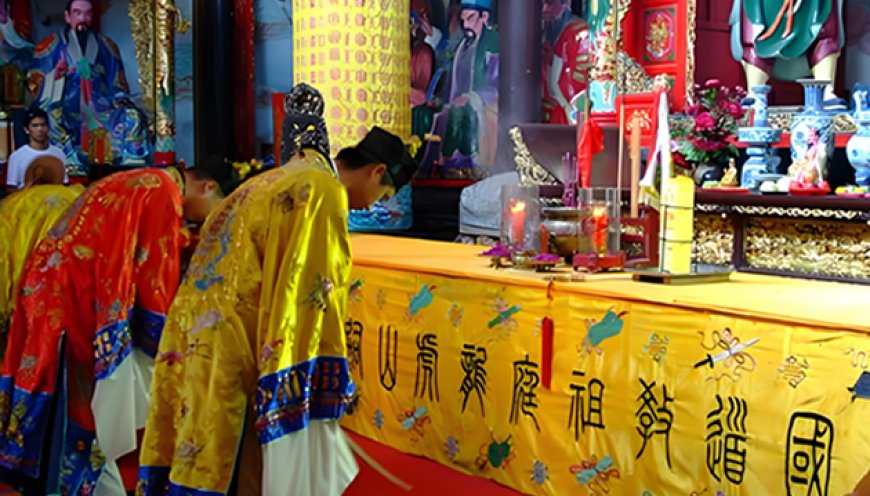
Chapter Seventy-two
When people do not respect the authority,
There shall be great misfortune.
Do not interfere with the people’s livelihood.
Do not despise their living.
Because there is no detest against the people,
Therefore the people do not detest against the authority.
The saint realizes his true nature and hence
Does not distinguish himself.
He has a sense of self-respect and thus does not exalt himself.
Therefore, he rejects those that are self-distinguished and self-exalted.
And abides by these that are self-awareness and self-respect.
Chapter Seventy-three
He who is brave in being daring, acts recklessly and shall be killed.
He who is brave but acts cautiously and kindly shall live.
Of these two, one is beneficial while the other is harmful.
What nature wishes, who may know what the reasons are?
Thus, the saint is aware of the subtlety and profoundness of the Nature’s Way,
So he takes great caution in practicing It.
The Tao of Nature,
Does not contend, yet easily wins.
Does not speak, yet always responds.
Does not summon, yet all things gather.
Does not contemplate as if at ease,
Yet all plans were devised perfectly.
The Law of Nature is like a giant web,
Although sparsely meshed, nothing can slip through.
Chapter Seventy-four
When people do not fear death,
There is no use trying to threaten them with death.
If people value their lives, and those who break the law were being executed,
Then who would dare to commit criminal act?
The life and death of all beings are handled by the executioner of Nature.
Those who substitute the nature executioner to kill,
Is like replacing the master carpenter to chop the wood.
One who substitutes the master carpenter to chop the wood,
Rarely does not hurt his hands.
Chapter Seventy-five
People starved because the ruler taxed too heavily.
People are difficult to be ruled,
Because the ruler governs with personal desire and establishes too many laws to confuse the
people.
Therefore the people are difficult to be ruled.
People take death lightly,
Because the ruler pursues after luxurious life and depletes the people.
Therefore the people take death lightly.
One who does not value his life with self-desire, truly cherishes his life.
Chapter Seventy-six
When a man is alive, he is soft and supple.
When he dies, the body becomes hard and stiff.
When a plant is alive, it is soft and flexible.
When it is dead, it becomes dry and brittle.
Therefore, hard and rigid shall lead to death.
Soft and gentle shall lead to life.
Thus, a strong army with rigid force shall not win.
A thick and big tree will be cut down for its use.
The big and strong will take an inferior position.
The soft and gentle will take superior position.
Chapter Seventy-seven
The Tao of Nature is like stretching a bow.
When the stretch is too high, it needs to be pressed down.
When the stretch is too low, it needs to be raised high.
The excess will be reduced.
The deficient will be replenished.
The Tao of Nature is to reduce the excessive and to replenish the insufficient.
The Tao of man, however is otherwise.
It takes from the needy to serve those who already have a surplus.
Who can spare one’s surplus to serve the world?
A person of Tao.
Thus, a saint acts without holding on to the achievements.
He accomplishes but does not claim for credit.
He has no desire to distinguish himself.
Chapter Seventy-eight
There is nothing in this world that is softer and meeker than water.
Even those that can conquer the strong and hard,
Are still not superior than water.
Nothing can substitute it.
Hence, what is soft can overcome the strong.
What is gentle can overcome the strength.
This is known by the world.
However, people cannot put it into practice.
Therefore, the saint said as follow:
He who can take the disgrace of a nation,
Is said to be the master of the nation.
He who can bear the misfortune of a nation,
Is said to be the ruler of the world.
Truthful words may seem to be the reverse of worldly practices.
Chapter Seventy-six
When a man is alive, he is soft and supple.
When he dies, the body becomes hard and stiff.
When a plant is alive, it is soft and flexible.
When it is dead, it becomes dry and brittle.
Therefore, hard and rigid shall lead to death.
Soft and gentle shall lead to life.
Thus, a strong army with rigid force shall not win.
A thick and big tree will be cut down for its use.
The big and strong will take an inferior position.
The soft and gentle will take superior position.
Chapter Seventy-seven
The Tao of Nature is like stretching a bow.
When the stretch is too high, it needs to be pressed down.
When the stretch is too low, it needs to be raised high.
The excess will be reduced.
The deficient will be replenished.
The Tao of Nature is to reduce the excessive and to replenish the insufficient.
The Tao of man, however is otherwise.
It takes from the needy to serve those who already have a surplus.
Who can spare one’s surplus to serve the world?
A person of Tao.
Thus, a saint acts without holding on to the achievements.
He accomplishes but does not claim for credit.
He has no desire to distinguish himself.
Chapter Seventy-eight
There is nothing in this world that is softer and meeker than water.
Even those that can conquer the strong and hard,
Are still not superior than water.
Nothing can substitute it.
Hence, what is soft can overcome the strong.
What is gentle can overcome the strength.
This is known by the world.
However, people cannot put it into practice.
Therefore, the saint said as follow:
He who can take the disgrace of a nation,
Is said to be the master of the nation.
He who can bear the misfortune of a nation,
Is said to be the ruler of the world.
Truthful words may seem to be the reverse of worldly practices.
Chapter Seventy-nine
When a great resentment has resulted,
Even if one tries to reconcile and make peace,
There is bound to leave some remaining resentment.
Thus, how can this be considered as a good settlement?
Therefore, a saint cultivates himself with introspection and self-discipline without blaming others
for faults.
This is like the ancient custom which acts by holding on to the left part of the tally as a debtor
that demands nothing from others.
Hence, a person of virtue acts as if he were the debtor.
And a person without virtue acts as if he were the creditor that demands only from others.
The Tao of Nature is impersonal which makes no exception to anyone.
It always assists those that are kind and virtuous.
Chapter Eighty
An ideal nation is small and with few people.
Although there are abundant weapons, there is no need for the use
Let the people cherish their life and not pursue after fame and wealth,
So that they have no intention to move to faraway places.
Although there are boats and carriages, no one will ride them.
Although there are weapons and armors, there is no occasion to display them.
Let the people return to the ancient simple life where knotting ropes were used to record every
event.
People would then enjoy the simple food, simple clothing, and be contented with a simple life.
And they shall live happily with the traditional customs.
Neighbors of the nations overlook one another in the near distance.
The barks of dogs and crowing of cocks can be heard.
Yet people are so contented that they enjoy their life without ever visiting each other.
Chapter Eighty-one
Words of truth are not pleasing.
Pleasing words are not truthful.
The wise one does not argue.
He who argues is not wise.
A wise man of Tao knows the subtle truth,
And may not be learned.
A learned person is knowledgeable but may not know the subtle truth of Tao.
A saint does not possess and accumulate surplus for personal desire.
The more he helps others, the richer his life becomes.
The more he gives to others, the more he gets in return.
The Tao of Nature benefits and does not harm.
The Way of a saint is to act naturally without contention.
What's Your Reaction?













